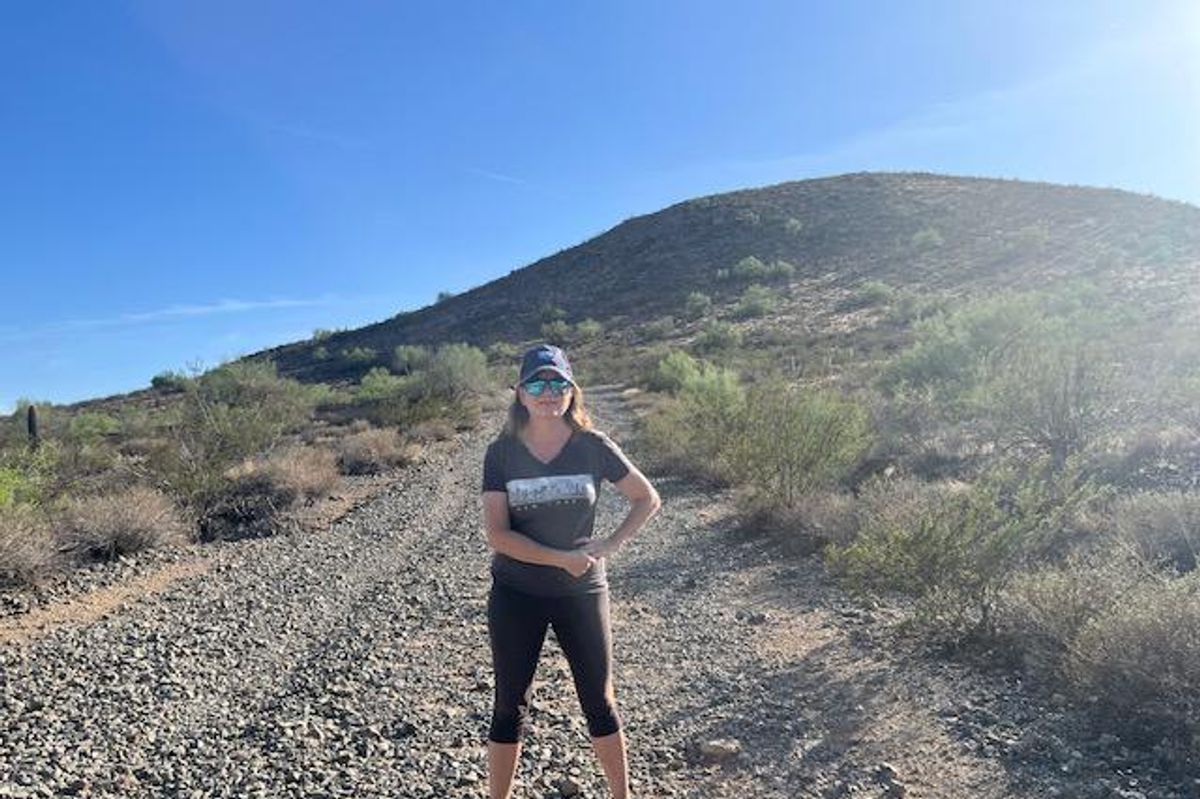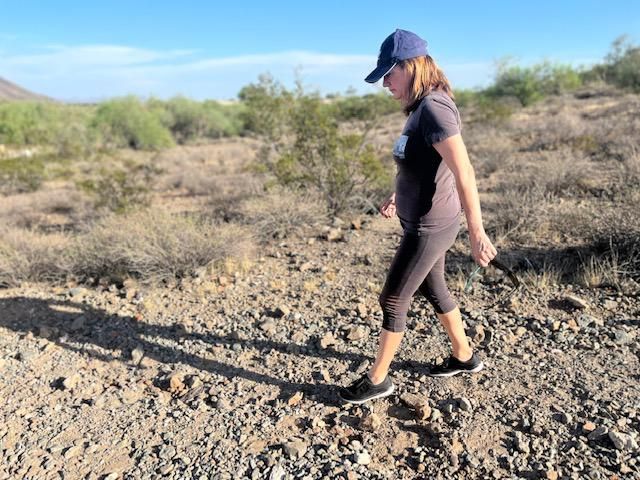
Arizona, 2022 (Photo/Chris Kawashima)
I Thought I Knew About the Dangers of Summer Heat
My normal weekend hike almost turned deadly
Aug 02, 2022
Aug 11, 2022
Real Women, Real Stories
Laine's 25-year professional background includes experience in book & magazine publishing as well as marketing, communications, organizational development, strategic planning and fundraising for nonprofits. Having lived with ulcerative colitis (UC) since college, she has a particular interest in educating people about UC, Crohn's disease inflammatory bowel disease.
Full BioLearn about our editorial policies

Arizona, 2022 (Photo/Chris Kawashima)
My normal weekend hike almost turned deadly
I knew better. Living in Arizona for 17 years, I’d gotten used to the blazing temperatures of summer. Days, and yes, nights, over 100 degrees for weeks on end are typical, and really not much of an issue unless your A/C goes out. Even on those handful of days that are over 110, I only feel the heat during brief dashes between my car and the store or the office. So I am used to the heat.
Every summer, our local news stresses the same routine safety precautions: Exercise early in the morning, drink plenty of water, wear a hat, etc. And there are always dozens of tragic stories of people dying on our hiking trails because of the extreme heat, or needing rescuing just in the nick of time. But it’s always someone else — a tourist, an older person. Certainly not someone who is used to the heat. Certainly not me.
That Sunday in June, after an intensive morning of work, I was ready to get off the computer and get outside for a while. That weekend was the first excessive heat warning of the summer, so I knew it would be scorching. But I didn’t intend to be out long, and I could handle it — or so I thought. I can still hear my husband Chris’s voice: “You’re going out now, at noon? At least wear a hat and bring some water.” “ll be fine,” I thought as I jumped in my car, headed for the hiking trail.
When I arrived, there was only one other car in the parking lot. That meant only one other person on Earth was as crazy as me to be out there in the blazing heat. I should’ve turned back then. Mistake #1. Not wanting the hassle of having to carry a water bottle the whole way, I left it in the car. Mistake #2.
Phone in hand, listening to my favorite YouTube vloggers, I started on the trail, on a hike I'd done a million times before. My feet crunched along the loose, rocky path incline. I was surrounded by incredible views and nature of the southwest desert. About 30 minutes in, I started up the first leg of the peak on a part of the trail that we’ve dubbed “Lombard” in homage to San Francisco’s famous zig-zaggy street. Lombard is steep and can really kick your butt, so I made sure not to push it. Even then, I didn’t feel thirsty and wasn’t sweating much, so it never occurred to me that I wouldn’t be fine.
As I neared the last leg up to the peak, I decided to rest on a rock to catch my breath before the final push. It was windy there, and the breeze, while hot, felt good on my skin. But things changed suddenly. I started getting that tingly, lightheaded feeling you get before you faint. It came on quick. I knew that if I passed out up there in that heat, I might not be found for hours — or at least a day. “I cannot faint up here. I gotta hold it together,” I told myself. Barely able to see my phone screen due to the white-hot brightness of the sky, I reached Chris and told him to come meet me because I was dizzy. I was now fully aware of the truly dangerous situation I was in — that I had put myself in. Alone on a steep mountain trail with no water, nearly 110 degrees, with no one else around, and a 30-minute hike down to the car. This is how people die on summer hikes. These are the stories I hear on the news.

I tried to make my way down the trail. My fuzzy thinking reasoned that if my body was moving, I’d have less chance of fainting. I was wrong. With each shaky step, my vision got blurrier, and then a surreal black and white, and then pure blindness. Why I didn’t just stop, I don’t know. But the next thing I recall was my body and face slamming on the ground. I'd most likely fainted and the fall jolted me awake. As I started to pull myself up, I saw blood streaming onto the rocks below me. I’d landed directly on some jagged rocks, which tore a gash on the bridge of my nose.
Right at that moment, while still on the ground, I heard a voice on the trail ask if I was OK. It was unbelievable. Still barely able to see, I scrambled to sit up while my mind was still in a woozy haze from the heat and fainting. Brian, as I learned later, was rounding the turn when he heard me fall. He gave me an old T-shirt to help stop the bleeding and one of his bottles of water. I sat there, still in a daze, drinking the water and pouring it over my head. Sitting there on the trail, we both couldn’t believe the fortune of his being there at that critical moment.
It took nearly 15 minutes before I felt stable enough to make my way down the trail with Brian’s help. Halfway down, Chris met us with a cool towel for my neck, and a sports bottle of water and electrolytes, along with a protein bar. As we approached the parking lot and safety, I could not believe what had just happened.
So, what did I learn? Never underestimate the heat. Even if you think you’re used to it, heat exhaustion and heat stroke can be deadly. And it can sneak up on you. You may think you can rely on your body to tell you when you’re in danger, but you can’t. You may not know you’re in distress until it’s too late.
What I thought was going to be a routine hike turned into a deadly situation. I found out later that two days earlier, a woman had been found dead on a nearby hiking trail, apparently due to the heat. That could’ve been me.